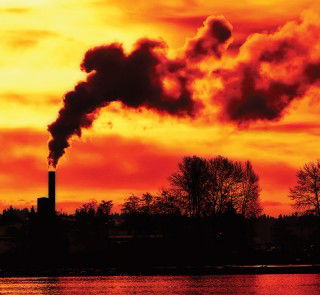CEMBUREAU this week called for urgent action at a European and national level to help tackle the rising cost of energy, which it warns “will lead to widespread plant closures across the EU, creating a crisis in the construction supply chain.” Some EU member states have seen their electricity prices increase 10-fold compared to last year. According to CEMBUREAU, 1t of cement requires around 110kwh of electricity to produce. With electricity prices now between EUR700-1000mwh in several EU member states, electricity costs per tonne of cement amount to EUR70-110, tripling the cost of cement production.
CEMBUREAU has urged for several measures to be put in place in the short term to help ease the burden on cement plants. These include all available sources of electricity generation being used to boost power supplies. Emergency measures, including energy price caps, should also be implemented immediately. The EU temporary state aid framework adopted in late March 2022 should allow all energy-intensive industries to have access to state aid covering 70-80 per cent of eligible costs. Meanwhile, co-processing in cement kilns should also be “actively encouraged” with the use of non-recyclable waste and biomass waste a readily available solution to not only help reduce reliance on fossil fuels but also aid decarbonisation of the cement production process.
The association goes on to outline a number of other measures that should be urgently considered, such as changing the electricity market design rules, including the marginal price setting mechanism, to prevent further electricity price hikes in the future. The pace of the EU climate agenda (‘Fit for 55’) should also be maintained, and the Carbon Border Adjustment Mechanism (CBAM) should be implemented in a timely manner. In parallel, continued support for breakthrough technologies such as carbon capture, usage and storage (CCUS) will play a critical role in decarbonising the industry, according to CEMBUREAU. Finally, the cement sector should be made eligible for financial compensation under the EU ETS indirect state aid guidelines, and the large-scale deployment of renewable energy should be supported across the EU.
Germany replaces Russian imports
With the war in Ukraine painfully exposing Europe’s dependence on Russian gas, EU countries are now in a race to implement renewable energy sources to help support their industries. In the interim period, Germany has announced that it will replace all its Russian energy imports, most notably natural gas, by mid-2024. This may seem somewhat ambitious given that in 2021 Russia accounted for 55 per cent of Germany’s gas imports. The Nord Stream 1 pipeline has now been shut off and will not reopen until sanctions are lifted.
To help tackle the challenge, Germany has been importing liquified natural gas (LNG) from as far afield as Qatar and Canada, as well as introducing levies to help improve the country’s energy storage facilities. The government has also opted to reinstate its oil- and coal-fired power plants, along with potentially extending the lifetime of its three remaining nuclear plants. With a real danger of there being insufficient energy by winter 2022, a list has already been drawn up by the German government as to which industrial sectors would need to be “switched off” if rationing of energy was required.
Spain suspends operations
Spain knows only too well the price paid by rising energy costs, having seen the closure, albeit temporary, of several cement plants in March this year as energy prices rocketed. Cementos Portland Valderrivas, Tudela Veguin and FYM-HeidelbergCement all took action, calling on the Spanish government to address the high electricity prices as almost half of the kilns in the sector had to stop as a result of the high prices stemming from the war and from a dysfunctional domestic wholesale market.
UK introduces energy price cap
In the UK, this week has seen the newly-elected Prime Minister, Liz Truss, announce plans to cap domestic and business energy bills in a bailout move that could cost as much as US$172bn. Despite calls for a windfall tax on oil and gas producers, Ms Truss fears that could affect investment in the UK just as the economy teeters on the edge of recession.
The UK-based Mineral Products Association (MPA) called on the chancellor at the end of August to take urgent action to support the country’s mineral products sector. Among the measures identified by the MPA were allowing the temporary deferral of VAT payments, and the reinstating or replacing of the red diesel rebate to cut fuel duty. Earlier this year, the UK chancellor removed the mineral products industry’s right to use red diesel. While in the long-term the industry is committed to transitioning to non-diesel equipment, with no immediate alternatives available, the move was deemed “very badly timed” by the MPA.
Egypt switches back to gas from coal
The challenge for cement producers is that this latest energy crisis comes on the back of escalating raw material prices with producers the world over having to take action, whether switching energy sources, suspending operations or raising cement prices. In Egypt, for example, cement companies announced late last year that they were looking to return to natural gas instead of coal as coal prices began to soar. Coal prices continue to rise - see below.
